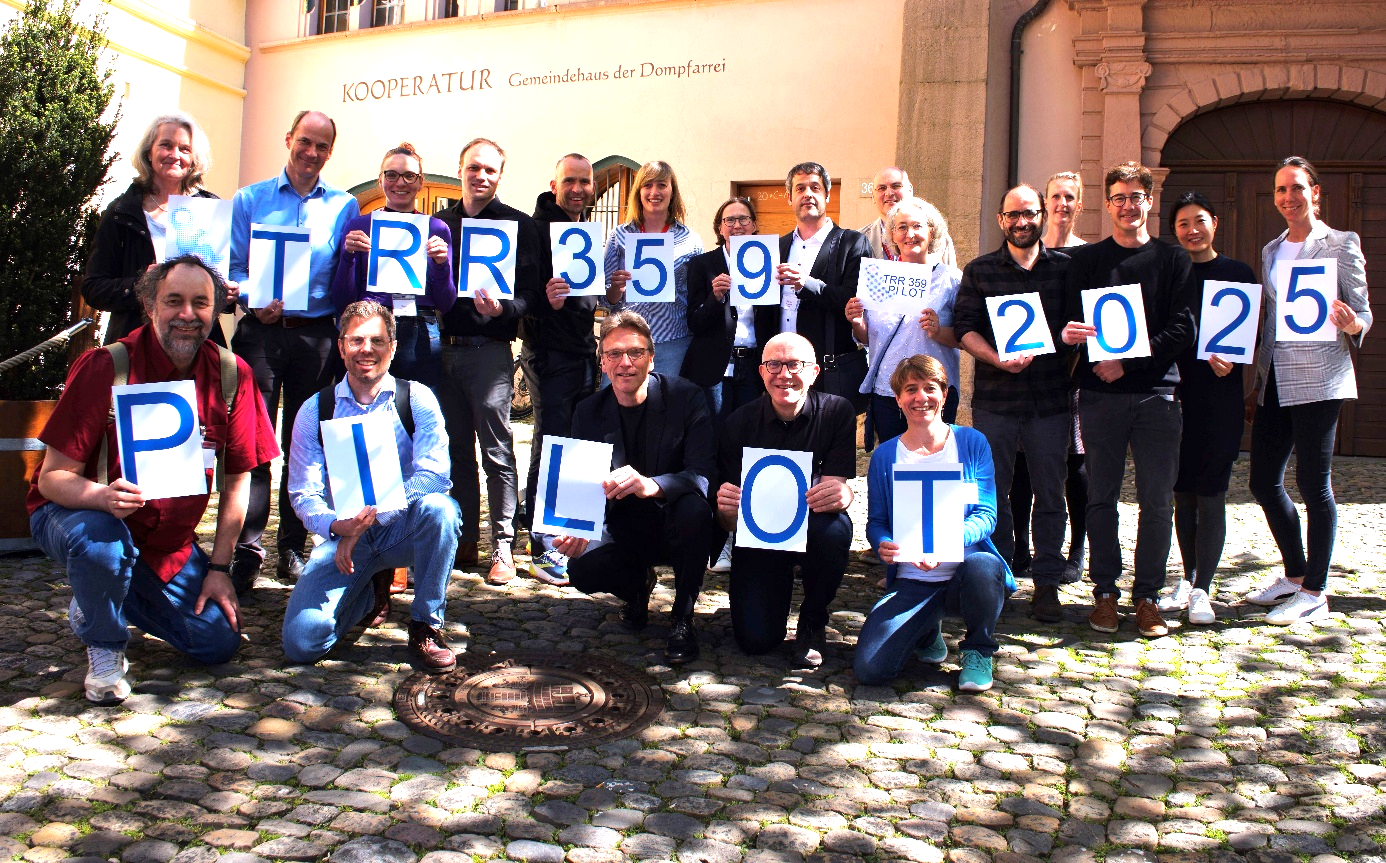International Symposium on Perinatal and Early Life Immunity – Freiburg 2025
From April 9–12, 2025, the PILOT consortium hosted the first International Symposium on Perinatal and Early Life Immunity at the “Historisches Kaufhaus” in Freiburg, Germany.

© T. Nguyen
The event brought together leading international experts in the field to discuss the latest findings on immune development around birth and its impact on lifelong health.
This symposium marked the scientific highlight of the first funding period of TRR 359, recognizing the achievements of the consortium and providing a platform to shape the future of research in this rapidly evolving field.
Scientific Program Highlights
The scientific program of the symposium was divided into thematic sessions, dealing with key aspects of immune development in early life.
The symposium opened with sessions on the materno-fetal interface and early innate immune development, exploring how maternal signals and microbiota shape the fetal immune system. The day ended with a vibrant poster evening and informal discussions.
The second day focused on the development of macrophages and dendritic cells, maternal cues in immune programming, and prenatal immune development. Insights into intestinal immunity in early life and translational perspectives rounded off a day of dynamic dialogue.
The sessions on Friday covered the development of adaptive immunity, interface immunity, and myeloid cell maturation. The final session addressed perinatal immune adaptation, followed by a social evening and poster prize ceremony.
On Saturday morning, the spotlight was on microbiome development, host-microbe interactions, and the role of metabolism in shaping early immune responses. The symposium ended with closing remarks by the PILOT Speakers and a strong impedus for future collaboration.
Overall, the sessions provided a comprehensive overview of current research in the field of perinatal immunity and illustrated the significant progress being made in various areas of the field.
A Platform for Exchange
The scientific quality of the contributions was exceptional and the symposium was characterised by a lively and collegial atmosphere that encouraged active engagement and exchange. Poster sessions and coffee breaks provided valuable opportunities for scientific dialogue and networking across all career levels. Early career researchers, particularly those funded by the CoPILOT program, played a key role in these interactions and helped to shape the open and inclusive nature of the symposium. Informal discussions complemented the formal sessions and created space for new ideas, feedback, and potential collaborations. A particular highlight was the extensive participation of all members of the PILOT consortium, reflecting the strong spirit of collaboration and shared commitment to advancing perinatal immunity research within the TRR 359 network.
Outlook
This symposium not only presented cutting-edge science findings but also laid the foundations for future collaborations in the emerging field of perinatal immunity. The TRR 359 consortium would like to thank all speakers, participants, and organizers for making this meeting such a stimulating and successful event.
Make sure to check out our report on the Symposium Poster Event as well!
